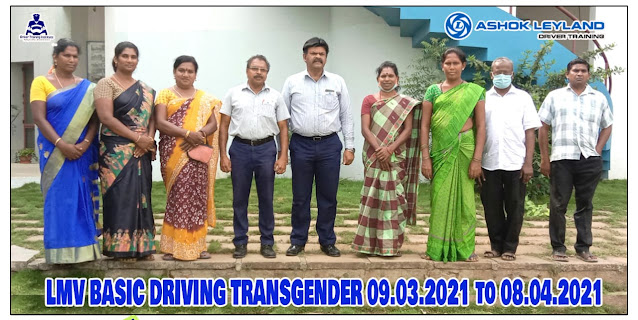लेखक- रमेश कुमार * हिन्दी अनुवाद- पंकज कुमार
।
लेखक-रमेशकुमारहिंदीअनुवाद-पंकजकुमार
उसकानाममर्फीथा| लम्बाकद,छरहराबदन,बालहमेशाबंधेहुए,लिपस्टिक? हमेशा, गर्मियोंमेंकालाचश्माऔरएकलेडीजपर्सकन्धोंपेटेंगाहुआ|
मर्फी१४सालोंतकमेरेपडोसीथेजबतकमैंवहांथा, मैंतीसरेमालेपेरहताथाऔरवोमेरेऊपरवालेमेलपर|
लगभगरोजहमएकदूसरेकोअभिवादनकरतेथे|
मर्फीकिन्नरथे,औरएकपरिवारमेंरहतेथेजिसमेंकुछबकरियां, मुर्गियांऔरएककुत्ताथा,छतपरउन्होंनेबरसातीडालकरफ्लैटबनारखाथा|
किन्नरोंसेयेमेरापहलानजदीकीसंपर्कहुआथा|मेरेपरिवारकोछोड़करबिल्डिंगकेबाकीपरिवारउनसेदूरीबनाकररखतेथेऔरहमेशाऐसेसवालउठातेथेकीहमऐसीबिल्डिंगमेंकैसेरहसकतेहैं,मैंनेऐसेसवालोंकोकभीतवज्जोनहींदी|
लम्बीसड़कयात्राओंमेंकिन्नरअक्सरटोलप्लाजापेमिलतेहैं, वहांवेहरगाडीकेमालिकसेमददकीगुहारकरतेहैं| मर्दउन्हेंअजीबनज़रोंसेदेखतेहैंऔरभद्देकमेंटकरतेहैंजबकिमहिलाएंउनसेडरकरकारकेशीशेचढ़ालेतीहैं| हाँ,कुछट्रकड्राइवरउन्हेंमददमेंरूपयेदेदेतेहैं|
चेन्नईकेआसपासकीरेलगाड़ियोंमेंजबभीजाताहूँकिन्नरगाडीमेंसवारहोजातेहैं, मददमांगतेहुए,औरकभीकभीतोसहयात्रीइनसेछुटकारापानेकेलिएपुलिसतककोबुलालेतेहैं|
येहमारेसमाजकाहिस्साहोतेहुएभीनहींहैंक्यूंकिहममेंसेअधिकांशलोगोंनेइन्हेंअपनानेसेइंकारकरदियाहै|एकसामान्यज़िन्दगीसेवंचित, समाजद्वाराप्रताड़ितऔरअच्छाजीवनयापननमिलपानेकेकारनउन्हेंभीखमांगनीपड़तीहै|
संविधानमेंइनकोमर्दऔरऔरतजातिकेबराबरहक़देनेकीबातअच्छीहै, परजरुरीहैअसलियतमेंइन्हेंअपनानेकी| यहीप्रयासअशोकलीलैंडकररहाहै|
मार्च२०२१मेंअशोकलीलैंडनेएकअच्छीशुरुआतकी|नम्मकल, तमिलनाडुजहाँइनकीएकमात्रड्राइवरट्रेनिंगइंस्टिट्यूटहैजोगत३दशकोंसेचलरहीहै, २५एकड़मेंफैलीहुई, ड्राइविंगसीखानेकीसारीसुविधाओंसेपरिपूर्ण|यहाँ८किन्नरोंकोट्रेनिंगकेलिएनामांकनकियागयाऔरउनकोस्टेटट्रांसपोर्टडिपार्टमेंटसेवैधड्राइविंगलाइसेंसदिलानेकीव्यवस्थाकीगयी|
इसकासाराश्रेयमुहम्मदअलीसाहबकोजाताहैजोहिंदुजाग्रुपकंपनीकेनेशनलहेडड्राइवरट्रेनिंगहैं| हमारेसंवादातासेफ़ोनपरबातकरतेहुएउन्होंनेबतायाकीचेन्नईहेडऑफिसकेएचआरहेडसेबातकरतेहुएकिन्नोरोंकोट्रेनिंगमेंशामिलकरनेकाजिक्रहुआथा|
उन्होंनेयेभीबतायाकीकुछसालपहलेएककिन्नरकोट्रेनिंगदीगयीथीपरड्राइविंगलाइसेंसमिलनेकेबादउन्होंनेड्राइविंगनहींकी,फिरउसकाअतापताभीनहींचला, इसलिएहमनेनएसिरेसेयेकामफिरशुरूकिया|
कहतेहैं, जहाँचाहवहांराह|
तमिलनाडुकीयेविशेषताहैकीवोएशियाकाएकमात्रऐसाराज्यहैजहाँकिन्नरोंकासबसेबड़ा१८दिवसीयत्यौहारमनायाजाताहै|इसत्यौहारकेदौरानउनकासांकेतिकविवाहबहुतहर्षोउल्लासकेसाथहोताहैऔरआखरीदिनवेविधवापनकोअपनातेहैं|
किन्नरसमाजद्वाराप्रताड़ित, कोईजीवनयापनकासाधननामिलनेकेकारणभीखमांगनेयावैश्यावृतिपेमजबूरहोतेहैं|ऐसेहालातमेंअशोकलीलैंडकाउन्हेंड्राइविंगसीखानेऔररोजगारदेनेकाकदमसराहनीयहै|
सालोंसेमैंनेमहिलाट्रकऔरबसड्राइवरकीमांगकासामनाएकसीएसआरकेप्रतिगंभीरकंपनीसेलीहै,परलीलैंडकेइसकदमकाभविष्यसचमुचदेखनेयोग्यहोगा|
इन८किन्नरोंमेंसे३जिनकोट्रेनिंगऔरवैधड्राइविंगलाइसेंसमिलगयी, एकहैंमनीषाअग्रवालजोएकसर्टिफाइडऍमसीऐहैं|उन्होंनेफ़ोनपेबतायाकीयेएकबहुतअच्छाअवसरहै,हाँयेऔरबातहैकीउन्हेंऍमसीऐकरनेकेबादकोईनौकरीनहींमिली, नादीगयी|
लीलैंडकेअलीसाहबजोइसप्रोजेक्टकेकल्पनाश्रोतऔरकार्यकर्ताहैं,उनकाकहनाहैकीकिन्नरोंकोड्राइवरकेरूपमेंलेनेकीमिश्रितप्रतिक्रियाहै, येबसशरुआतहै|उन्होंनेकर्नाटकहोसूरबॉर्डरपे८किन्नरोंकेलिएनौकरीकीव्यवस्थाकीहै|
सुरेशबाबूजोनम्मकलस्थितड्राइवरट्रेनिंगइंस्टिट्यूटकेहेडहैं,उन्होंनेइसप्रोजेक्टकीसफलताकापूराविश्वासजताया, किन्नरोंकाइसनएजरियेसेदिलजीतनेकाभी| उन्होंनेबाहरकुशलतासेइनकिन्नरड्राइवरकोट्रेनिंगकेदौराननम्मकलकीसड़कोंपेगाडीचलवाईताकिसमाजइनकेनएरूपकोदेखऔरपहचानसके|
मनीषाकोआशाहैकीकिन्नरसमाजड्राइविंगकोरोजगारकेरूपमेंस्वीकारकरेगा| उन्होंनेयेभीकहाकीवेड्राइविंगकोएकनयीकलासीखनेकेरूपमेंलें|
अलीसाहबकोआशाहैकीवेलीलैंडकेमैनेजमेंटकोमनीषाकेलिएअपनेयहाँड्राइवरट्रेनरनियुक्तकरवानेमेंतैयारकरनेमेंसमर्थहोजायेंगे|
क्यायेकिन्नरड्राइवरसमस्तभारतमेंकामकरनेकोतैयारहैं? सुरेशबाबूकाकहनाहैकीअभीउनकेपासएलऍमभीलाइसेंसहैऔरएकसालबादहीएचऍमभीलाइसेंसमिलेगी|
परतमिलनाडुसेबाहरहिंदीभाषाकीकठिनाईओंकाक्याहोगा?मनीषाकाकहनाहैकीउनकाबचपनमुंबईमेंबीतनेकेकारणउन्हेंभाषाकीकोईपरेशानीनहींहै|
मनीषासेपुछागयाकीट्रेनिंगकेदौरानउनकोमर्दड्राइवरभाइयोंनेकैसेस्वीकारकिया, उन्होंनेबतायाकीपहलादिनमुश्किलथापरबादमेंसबठीकहोगया|
सुरेशबाबूनेबतायाकीपहलेलोगोंकोबहुतजिज्ञासाथीपरसबकिन्नरड्राइवरकोआरटीओद्वारा१००प्रतिशतट्रेंडपाएजानेपेबहुततारीफ़मिली|
अलीसाहबअबडेढ़केअलगअलगजगहोंमेंजहाँराज्यसरकारोंद्वाराचलेजानेड्राइविंगट्रेनिंगस्कूलहैं, किन्नरसमाजकोप्रोत्साहितकरनेमेंलगेहैं, विशेषतःट्रकड्राइवरबननेकेलिए, उनकाप्रयासहैकीयेपरलैंगिकवर्गजिनकोसर्वोच्चन्यायालयकीमान्यताहै, उसवर्गकोबराबरीकाअधिकारमिले|
अशोकलीलैंडकोबहुतबहुतमुबारकबाद !!!
इसलेखकेलेखकने१००००किलोमीटरराज्यमार्गोंपरबितायाहै, ट्रांसपोर्टमित्रप्राइवेटलिमिटेडकेसह-संस्थापकहैं,ड्राइवरदुनियानामकत्रिमासियेअंग्रेजीपत्रिकाकेएडिटरहैंऔरयूट्यूबचैनलसमाचारसड़कसेकेनिर्माता/निर्देशकहैं|


























